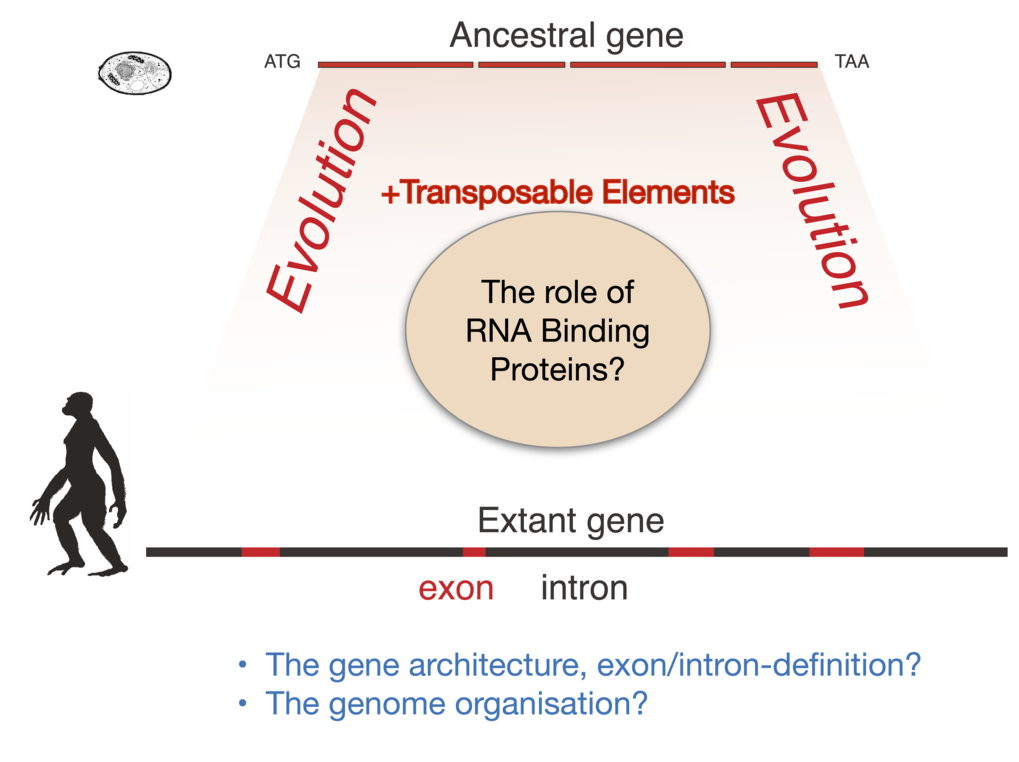Co-evolution of transposable element activity and host genome
Dr. Tuğçe Aktaş
The focus of Aktas group is to understand how eukaryotic genomes can maintain a robust gene architecture under the relentless assault of transposable elements (TEs). We strive to discover strategies that evolved to tolerate transposons, and how these strategies influence the organization of (a) genes, where we study the interplay between RNA polymerase II and the Spliceosome together with the impact of transposon- derived RNA when released as an intron or an exon, and (b) genomes, where we study nuclear condensates such as nuclear speckles that we think have evolved to solve RNA-processing challenges caused by expanding genomes resulting from transposon bursts. Ultimately, understanding these strategies will identify novel targets to tackle disorders such as many auto- immune and neurodegenerative diseases, which are likely caused by failures in RNA processing.
For more information visit the website of the Aktas lab (Quantitative RNA biology).

© T. Aktaş





